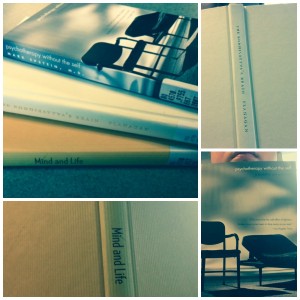
While aspects of all three of the religions we have studied over the past several weeks appealed to me as potential research topics, I was particularly inspired by the recent article we read, entitled “Buddhism and the Deconstruction of Selfhood,” by Porterfield. Specifically, the deconstructionist elements and character that Buddhism took in American culture, were especially of interest.
I started my search using the Skillman Library’s catalog, using keywords including “Buddhism” and “deconstruction” and other variations of the same terms. I skimmed the titles and did some further research on some of my selections before narrowing it down to three (I couldn’t choose a single title). Some of the discarded selections were materials in the form of articles or webpages, as well as those that did not address my field of interest.
Finally, I narrowed it down to three titles, all of which I found on the second floor of the library:
The Bodhisattva’s Brain by Owen Flanagan (published in 2011)
Useful Chapters:
Chapter 3: Buddhist Epistemology and Science
“My confidence in venturing into science lies in my basic belief that as in science, so in Buddhism, understanding the nature of reality is pursued by means of critical investigation: if scientific analysis were conclusively to demonstrate certain claims in Buddhism to be false, then we must accept the findings of science and abandon those claims” (Flanagan, 61). (quote from the Dalai Lama)
Chapter 5: Being No-Self and Being Nice
Psychotherapy Without the Self: A Buddhist Perspective by Mark Epstein, M.D. (published in 2007)
Useful Chapters:
Chapter 2: The Deconstruction of the Self: Ego and “Egolessness” in Buddhist Insight Meditation
“…in accordance with a modern object relations view of the self-concept as a “fused and confused…constantly changing series of self-images,” the “I” experience is revealed to be a constantly changing impersonal process, increasingly insubstantial the more carefully it is examined” (Epstein, 44).
“…the self-concept that was once experienced as solid, cohesive and real becomes increasingly differentiated, fragmented, elusive and ultimately transparent” (Epstein, 44).
“It is this realization that is at the core of what has conventionally become known as “egolessness,” and it is clear that such an understanding is not one that is easily reconciled with Western psychoanalytic notions of the personality” (Epstein, 44).
Chapter 9: Freud and the Psychology of Mystical Experience
Chapter 12: The Structure of No Structure: Winnicott’s Concept of Unintegration and the Buddhist Notion of No-Self
Mind and Life: Discussions with the Dalai Lama on the Nature of Reality by Pier Luigi Luisi (published in 2009)
Useful Chapters:
Chapter 1: How Real Are the Elementary Particles?
Chapter 6: From Consciousness to Ethics
Essentially, I would like to focus on the deconstruction of the ego and how that ties epistemologically to a greater understanding of the human experience of him-/herself and the world around them, that is internally and externally.